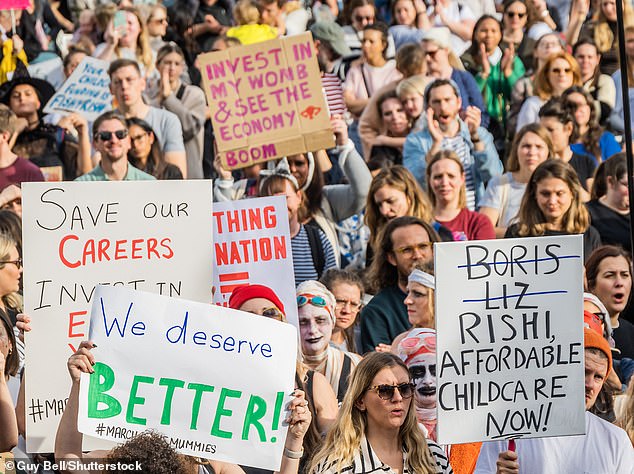One in three millennials say they NEVER want to have children as UK birth rates continue to fall
It’s around the age where those of us without children can start wondering if we’ve left things too late.
But the ticking biological time bomb doesn’t seem to worry a large number of childless 35- to 41-year-olds, it seems – with a third saying they never plan to become parents.
And a further one in five of the group admit they are ‘probably’ not going to have children.
As birth rates continue to fall in Britain, researchers surveyed thousands of people aged 18 to 59 on topics ranging from partnerships to marriage and fertility history.
They found that less than half of younger millennials (those ages 25 to 34) said they were definitely or probably planning to have a child.
Less than half of younger millennials (those ages 25 to 34) said they definitely or probably planned to have a child (Stock Image)
Among childless older millennials, ages 35 to 41, more than half believe they will not become parents — with many citing fears about the environment and world they would bring a child into as their choice.
Fertility begins to decline in women around age 35, while male fertility begins to decline from around age 40.
Among younger adults, between the ages of 18 and 24, there was also a large group of 15 percent who said they definitely would not have a child. Another 11 percent of Gen Z said they probably weren’t planning to have a child, while 22 percent weren’t sure.
Professor Brienna Perelli-Harris from the University of Southampton, who led the UK Generations and Gender Survey, said people may be putting off having children because of concerns about the future of the planet.
But she added: ‘While environmental concerns are a factor for older millennials, our study suggests this is not the case for Generation Z.
‘This could be because some younger people don’t want to have children for other reasons, or it could be that Gen Zers who want children are more concerned about the planet their children will inherit.’
The researchers also examined the percentage of family income spent on child care. It showed that lower-income households typically took 20 to 30 percent of their income, while higher-income households spent about 10 percent.

The researchers also looked at the percentage of family income spent on childcare. Pictured: March for Mummies protest in London in October 2022
A fifth of parents exclusively used formal childcare, such as daycare centers or childminders, while a quarter of parents relied exclusively on the help of parents, relatives or friends.
A third of parents did not use childcare at all, with parents with the lowest incomes most likely to belong to this group.
Childcare costs an average of £560 a month, with a quarter paying more than £800 and 15 per cent paying more than £1,000, the research found.
